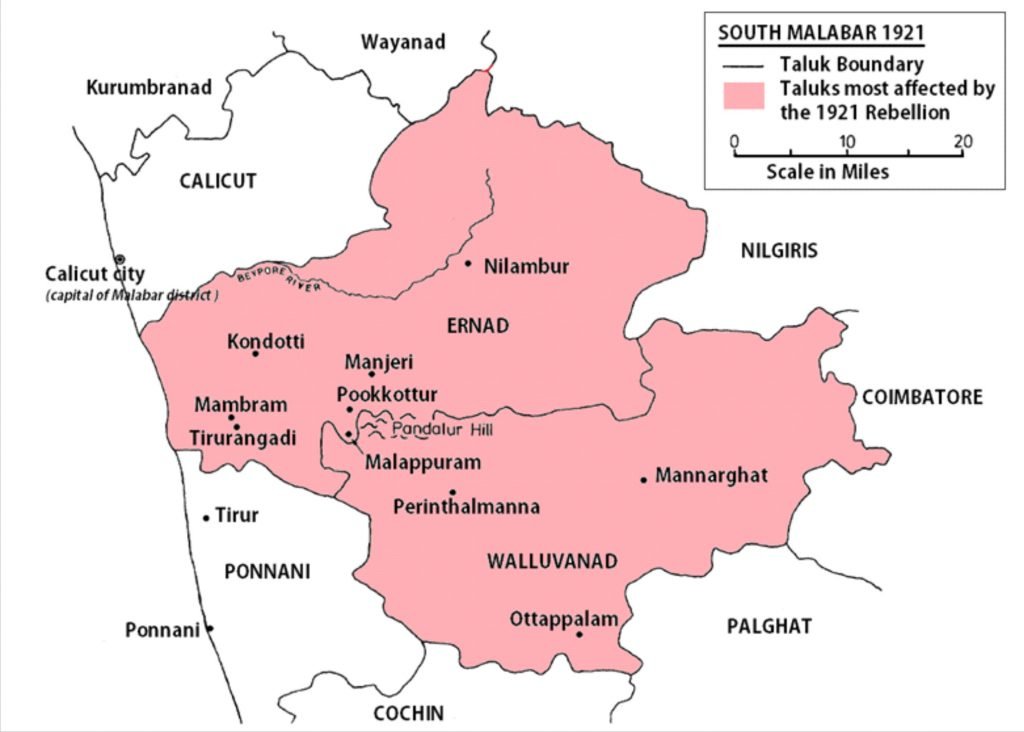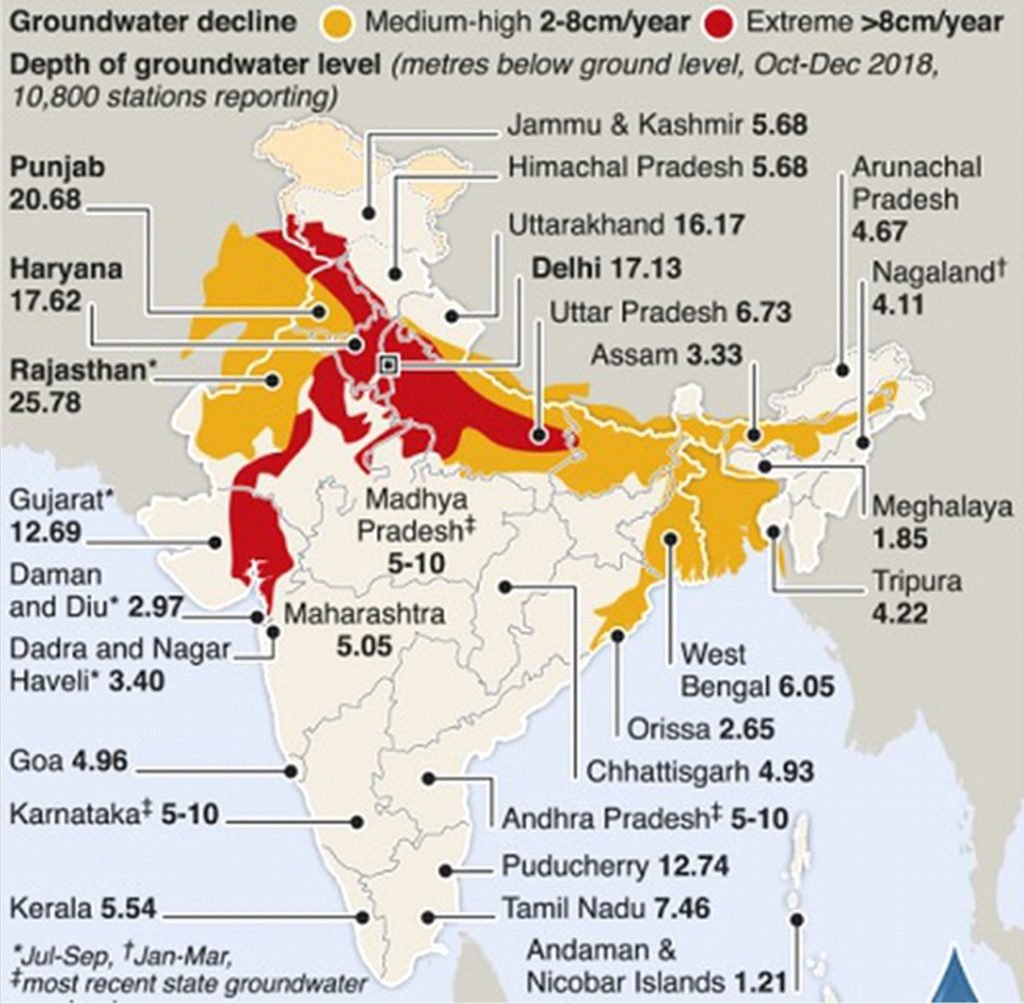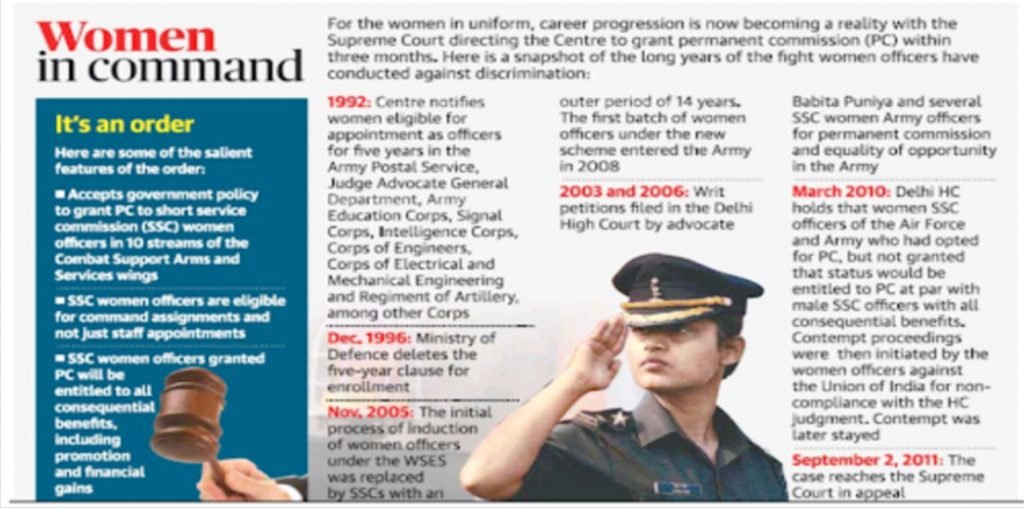Malabar rebellion of 1921
Indian Express
GS 1: Indian History
Context:
- Former BJP national general secretary Ram Madhav said the Moplah rebellion of 1921 was one of the first manifestations of the Taliban mindset in India and claimed the LDF in Kerala was celebrating it as a communist revolution.
About:
- August 20 marks the centenary of the Malabar rebellion, which is also known as the Moplah (Muslim) riots. It had been an uprising of Muslim tenants against British rulers and local Hindu landlords.
- The uprising, which began on August 20, 1921, went on for several months marked by many bouts of bloodstained events. Some historical accounts state the uprising led to the loss of around 10,000 lives, including 2,339 rebels.
- It has often been perceived as one of the first nationalist uprisings in southern India. It has even been described as a peasant revolt. In fact, in 1971, the then Kerala government had included the participants of the rebellion in the category of freedom fighters.
- The incidents of the uprising took place in regions which are currently under the Malappuram district in north Kerala.

Sustainable Cropping Techniques
Down to Earth
GS 3: Major Crops and Cropping Pattern in India
Context:
- Punjab and Haryana are switching to sustainable cropping techniques to preserve groundwater.
About:
- Groundwater levels in both states have been on a rapid decline.
- According to the Central Ground Water Board (CGWB), it decreased by about 85 percent in Punjab between 1984 and 2016.
- Haryana’s groundwater depletion rate is among the highest in the country.
- In Punjab and Haryana, the sown area shifted to other less water-intensive crops in recent years.
- Parts of the states have moved to alternative sowing methods and away from water-intensive crops this Kharif season.

Efforts Taken:
- Punjab brought 600,000 hectares under direct-seeded rice (DSR), an alternative for the traditional, water-intensive method of sowing rice.
- Haryana has also been promoting DSR and the state government announced to give Rs 5,000 per acre to farmers opting for this technology.
Significance of DSR:
-
- It can help reduce water consumption by as much as 35 percent over the traditional process of transplanting rice seedlings from a nursery to waterlogged fields.
- It is also the second year for Haryana’s ‘Mera Pani Meri Virasat’ scheme, under which an incentive of Rs 7,000 is being given to farmers to switch from paddy.
- For this scheme, the government is specifically targeting eight paddy-rich blocks where the groundwater levels have dropped below 40 metres.
Gender parity in the Army
The Hindu
GS 1: Social Issues
Context:
- The Supreme Court passed an interim order allowing women to appear for the National Defence Academy entrance exam.
- Till now, women could join the Army through the Indian Military Academy and the Officers Training Academy.
- The directive allows girls who clear the exam to study at the NDA and then at the IMA or the naval and air force academies and become commissioned officers.
Background:
- The ruling came on a writ petition seeking permission for women to sit for the NDA entrance exam.
- It argued that Articles 14, 15, 16 and 19 of the Constitution, which uphold the values of equality and allow equal, non-discriminatory opportunities at work, were being violated by denying eligible women the opportunity.
- The Government and the Indian Army, told the Court that it was a policy decision not to allow women to take the NDA exam.
- SC observations: SC said that it was based on “gender discrimination”. Closing a route of entry for women to join the Army was discriminatory.

The central government’s take on granting Command Posts to women:
- Physiological limitations: The Central Government has asserted the “physiological limitations” of women officers and changed the battlefield scenario as the primary reasons for not granting the command posts for women in the Army.
- Societal norms: The troops are not yet mentally schooled to accept women officers in command of units, the composition of rank and file being male predominantly drawn from the rural background with prevailing societal norms.
- Physical standards: Officers have to lead from the front. They should be in prime physical condition to undertake combat tasks.
- Inherent physiological differences between men and women preclude equal physical performance resulting in lower physical standards.
- The physical capacity of women officers in the Indian Army remains a challenge for command of units.
- Other challenges: Apart from lower physical standards of women officers compared to men, other challenges include prolonged absence due to pregnancy, children’s education, husband’s career prospects, etc.
Significance:
- Equal physiologically: Women officers of the Indian Army have brought laurels to the force. Keeping their track record in mind their service to the nation can never be denied and it is beyond reproach.
- Everyone serving in the Army is an equal citizen: To cast aspersion on the abilities of women on the ground of gender is an affront.
- Dignity of women: It is disrespecting not only their dignity as women but the dignity of the members of the Indian Army men and women both as they both serve as equal citizens in a common mission.
- Demolished gender stereotypes: Women officers in the Army are not adjuncts to a male-dominated establishment.
- Violation of Equality under the law: The Supreme Court also dismissed the government’s stand that only women officers with less than 14 years of service ought to be considered for permanent commission, and those with over 20 years of service should be pensioned immediately.
- Clarity on career paths: With the grant of PC, women officers will now be entitled to serving till the age of retirement and not forced to look for alternative careers after 14 years.
- It will place women officers on an equal footing with men for promotions, professional growth, and provide job security.
- Command roles for women officers: Now, women officers can be considered for command roles, career postings and many other opportunities to distinguish themselves professionally.
- Employee benefits: A grant of PC will accrue many other employee benefits, as, ‘In-service career courses’ (such as the National Defence College, College of Defence Management, the Army War College, etc), the Defence Services Staff College, options in higher studies (such as a Master of Business Administration or a Master of Technology), pension, ex-servicemen status, etc
Various initiatives for inducting women in Army
- The Indian Army had already set in motion a series of preparatory actions for the conduct of the Permanent Commission Selection Board for affected women officers.
- The Prime Minister’s Independence Day announcement said that girls will be granted admission in the Sainik Schools
Way ahead
- Allowing to directly join the services as permanently commissioned officers
- The terms of employment of short service commission are subject to change and conversions into PC are based on force requirements.
- It is possible that based on cadre forecast, an SSC officer may not ever get a chance of converting to PC if there are no vacancies.
- Also, there is no provision for women to choose defense as a long-term career right at the outset as a PC officer.
When parity of allowing entry of women as permanent cadre is attained, it would truly be a level-playing field in terms of equal opportunity and career advancement. Though the legal route has helped overcome some of the hurdles, it will be a long haul before gender parity is fully achieved in the Army.
Draft Electricity (Late Payment Surcharge) Amendment Rules, 2021
The Hindu
GS 3: Indian Economy
Context:
- The Ministry of Power has proposed to amend rules for facilitating electricity producers to sell power to a third party, which it said can pare fixed costs and cut retail tariff for end consumers.
About:
- The ministry circulated the draft Electricity (Late Payment Surcharge) Amendment Rules, 2021, seeking comments for the same.
- The power generating companies are being given an option to sell power to third parties and recover costs. To this extent, the fixed cost burden of the distribution licensee shall be reduced, the ministry stated.
- If a distribution licensee has any payment, including late payment surcharge, outstanding after the expiry of seven months from the due date as prescribed in the PPA (power purchase agreement), the generating company may sell power to any consumer or any other licensee or power exchanges, for the period of such default.
- The claim would be retained on payment of fixed charges or capacity charges from the distribution licensee, after giving a notice of at least 15 days to the distribution licensee.
- The claim, if any, shall be reconciled on an annual basis and shall be limited to only under-recovery of the fixed charges or capacity charges.

